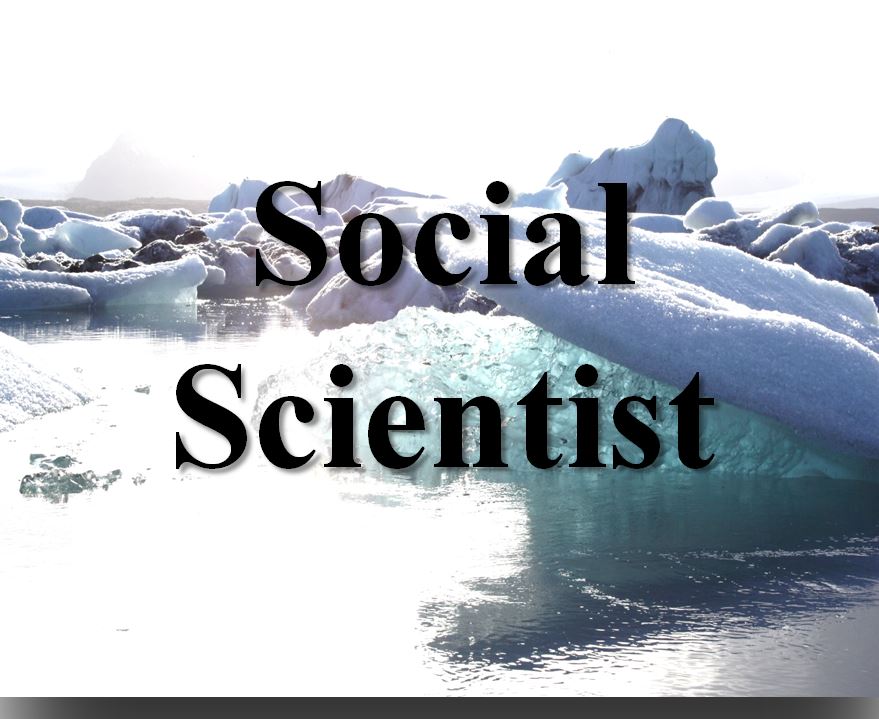“Does uncertainty make it easier for people to ignore the risk of climate change?”
The natural scientists were the first to tackle this question such that they made clear that in absence of absolute certainty it is crucial to point out uncertainties. Following this they expressed their idea that, in face of risk, a greater uncertainty increases the risk as well. They argued with the fact that uncertainties might lead to even worse possible outcomes and one should always account to the worst-case when assigning risks. Independently of their stand, we, as social scientists, were able to thrive on several studies accounting this topic. And in contradiction to the natural scientists’ deduction, we noted that increasing uncertainty leads to psychological distancing and thus raises the barrier for proactive action. Other studies further indicated that, talking about uncertainties verbally, people might conclude very different things. Prior experiences of “false alarms” affect the will for action as well as it does the perceived role of sciences. If people presume the goal of science to be debate rather than coming up with an absolute truth, changes in behavior are facilitated even tough facing uncertainties.
Representatives of the government of the Federal Republic of Germany afterwards used a different approach. Arguing that uncertainties are hard to handle in politics they complained that they would not get the publics’ rewards for protection against possible and uncertain future events but for an increase in life quality. Especially in the light of rising populist movements they do not want their efforts all being destroyed after getting “overthrown” by them. That is why they want to stick to the agreed way and why they see themselves unable to give more account to uncertainties. The also present business people first of all recognized climate change as a necessary factor in risk assessment. However, they conclude from uncertainties that they would have to invest more money than available.
Next were NGO members who started with the problematic of wording. In their eyes, risk and uncertainty both scare people and might therefore lead to a rejecting attitude. Anyway, they also followed the natural scientists’ approach to some extend and perceived uncertainty as an extra risk being added to the already present risk. Therefore they called for more cooperation of the public, politicians and scientists to create more awareness for both things – risk and uncertainty. So it was the natural scientists and us to pick up this topic. After explaining that one result of climate change can be a higher probability (and thus risk) of extreme weather events an additional uncertainty was identified to open the door for even more dangerous outcomes. Directed to the politicians, the natural scientists, on one hand, asked for more funding to reduce this very uncertainty but, on the other hand, also made clear that the biggest account of uncertainty still arises from human behavior.
In succession to that clear statement the business people broke the discussion with the crude statement that, in their eyes, it is better to ignore the risk if it is uncertain. So the NGO members reasonably countered that risks do not go away just because they are uncertain. The business investors asked for governmental compensation when uncertainties would hamper their calculations. However, following this they were faced with the criticism of calling for government action always in bad times while asking for non-intervention when their business runs smooth. Further, the business people still sticked to their “need for a clear number” to do proper risk assessment via investment. Since it is the nature of uncertainty to deny a “clear number” the discussion benefited from the politicians intervention, who tried to come back to the root of the problem: How to avoid damages (in regards of uncertainties)?
Sadly the circumstances of the debate did not allow us to come to a proper answer to that question. Classical risk assessment seems not to lead to increased risk through increased uncertainty. However, the core problem with that is the fact that classical risk assessment is always idealized: we do not have infinite time and neither infinite money in the face of climate change. If we further want to be on the safe side it is crucial to treat uncertainties by considering the worst case scenario rather than something in the middle or something uncertain. Assuming the former we could be surprised by things resulting in something worse than expected. If we stick to the latter, studies tell that people will rather do nothing than getting in action.

